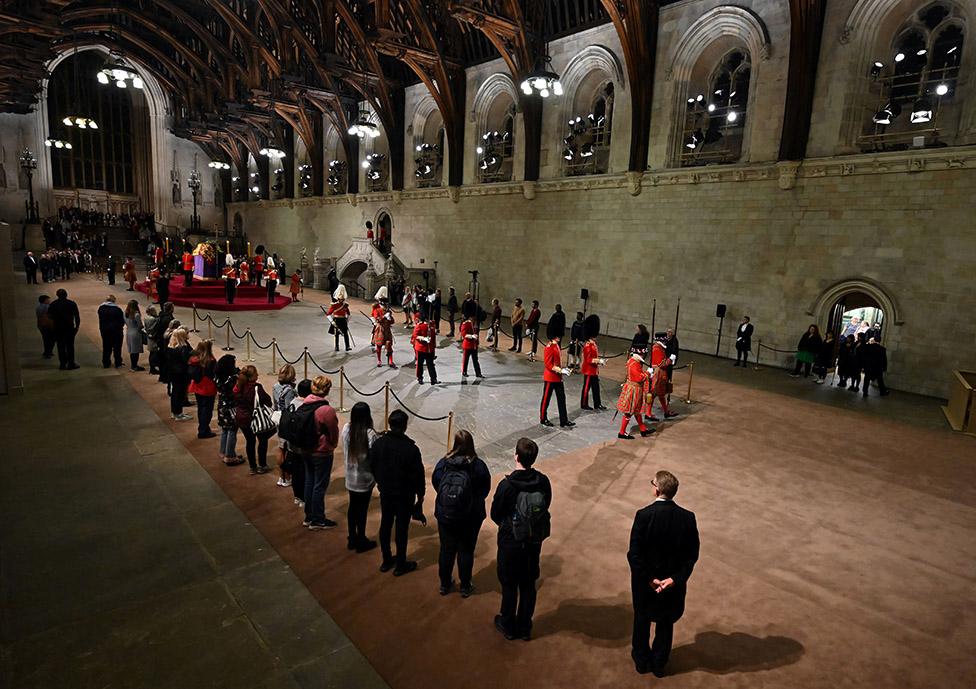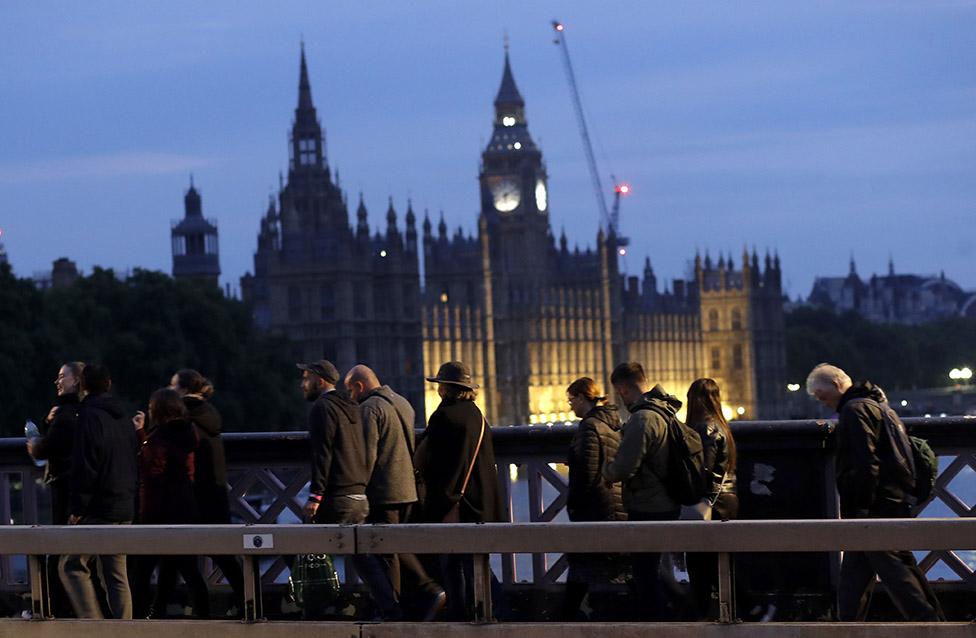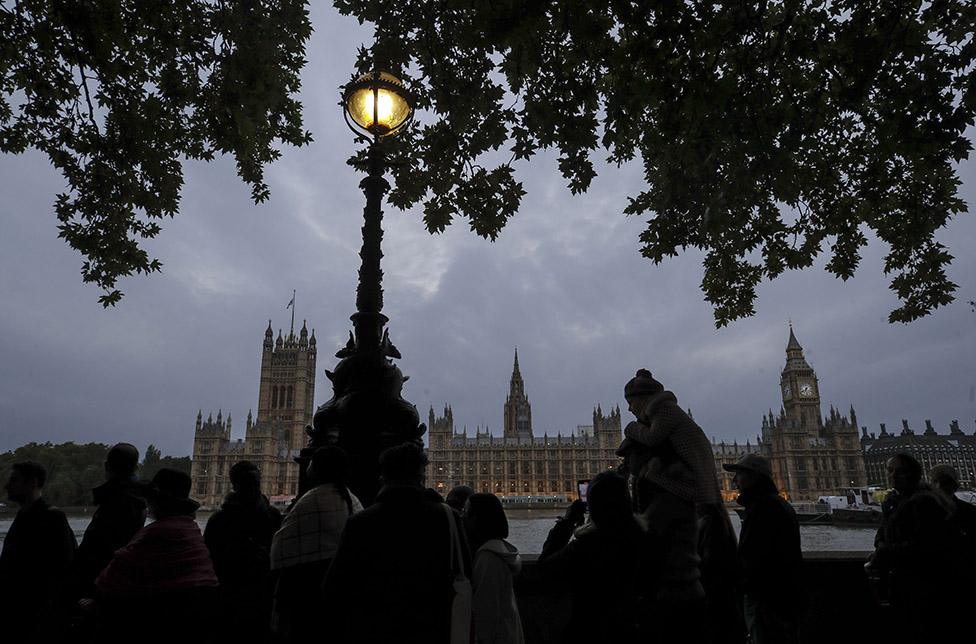Nick Robinson: The 'tap tap' amid the silence of Westminster Hall
- Published

Inside Westminster Hall, what struck me most was the incredible peace - the silence. It is a hall that I have been into many times. The silence was created not merely by the absence of the noise of our modern age, not merely by the fact there are no phones, no chatter, but something different.
This was not the silence of an ancient church or a cathedral. The thick deep pile carpet that has been laid on these ancient stones has seen to that - it muffles every footstep. No, the only silence here was in the wake of the "tap tap" once every 20 minutes. For the changing of the guard, "tap tap" is the signal that the change is about to happen.
"Tap tap" - it came again. When the guards lowered their swords, "tap tap" one more time, as they lowered their heads bowed in respect. Beneath the bearskins, beneath the hats and caps, you see the faces of ordinary men and women proud to serve their country, to do their duty to pay their own special respects to the, now dead, Queen. They will not move, barely blink for 20 minutes, creating the scene that thousands upon thousands are coming here to witness, to say that they were there.
Over the years, over the decades, I have seen some pretty extraordinary sights in Westminster, but nothing like what I witnessed in the early hours of this morning. Earlier, outside the hall in front of me was a full dress rehearsal for the Queen's state funeral - the Horse Guards with their shining helmets and red sashes.
There was the massed ranks of the guards who will stand guard for Her Majesty the Queen on Monday. This is what we will see and hear and join in as a nation, united in mourning. I was standing just outside Westminster Hall underneath a magnificent window presented to the Queen by members of Parliament back at the time of her Diamond Jubilee. I looked back at the people who have queued eight or nine hours through the night to take one last look at Her Majesty the Queen. One last look at the coffin topped with the magnificent crown.
In the queue, I spoke to them - they had no idea what it was they were about to experience.



What I wanted to understand is why people who aren't as lucky as me - who had to queue for hours through the night - were willing to do so for a brief moment of seeing the Queen lying in state. There's always a danger when you are a journalist that people repeat back to you what they have heard other people say on radio and television - that it is a moment of history, or that they wish to pay their respects or that they want to see things for themselves.
I found that when you probe a little deeper, what comes up again and again is a reference to how Elizabeth II carried out her duties, and not just the length of time she was on the throne. In other words the values that she stood for - duty, sacrifice, service.
As one woman told me that for her it was personal, the Queen symbolised her father's generation - one who believed in duty and commitment and service.
In other words, she represented a set of values, not merely a symbol as the Monarch. But it was her behaviour, the way she lived her life.
Another woman described her as an absolute icon - a fantastic person who cared about her people.
The few words that the Queen did publicly express over 70 years were used to bring people together, or to empathise - as she did so successfully during the pandemic. On other occasions she used them to reach out, as she did on her historic visit to Ireland in which she met with Martin McGuinness, the former IRA leader - the organisation which had murdered her cousin Lord Louis Mountbatten.
The question all of this raises that can't be answered now is whether this is about respect for the woman who has died, or for the institution of the Monarchy.
As Prof David Olusoga told me on the Today programme this morning, this is surprising and yet it is not unusual. Surprising because it hasn't happened for 70 years but not unusual because it is how people in this country have reacted to the death of previous monarchs.
What remains to be seen is whether those who don't feel moved, or do feel somewhat alienated by the sheer level of coverage of this event, will connect with the new King and eventually his successor the Prince of Wales - when, and if, he becomes the monarch. So the questions about the links between the monarchy and empire, or hierarchy, deference, and class, have not gone away - they will be asked in the future.
But here and now, what is striking is the extent to which the death of a 96-year-old woman has united people across all four nations, across all classes, across generations and across all backgrounds.

